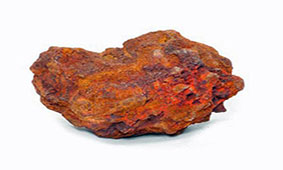
Pollution curbs, iron ore prices lift China’s scrap use

Chinese steel producers have increased scrap input in the BOF to meet stringent pollutant emissions standards. The average scrap charge in BOFs in the first half was higher by 1.1 percentage points from a year earlier at 20.50pc of the total burden, the China association of metal scrap utilisation (CAMU) said at a scrap conference in Bangkok, Thailand.
A sharp rise in imported iron ore prices after Brazilian Vale's fatal tailings dam collapse at the Feijao iron ore mine on 25 January also encouraged mills to partially substitute ore with scrap.
But with imported iron ore prices falling this month, steel mills have cut back on the scrap charge, which is currently at around 10-20pc of the BOF burden.
Heavy scrap prices in China were an average of 2,800-2,900 yuan/t in the first half, which fell by Yn300-500/t by mid-August. Despite the fall in scrap prices, it still costs around Yn400/t more to produce steel from scrap than iron ore at present.
Scrap resources are tight in China with inventories of steel mills, scrap recyclers and processing enterprises lower than the same period of last year.
Scrap use may be pressured further this year in China as electric arc furnace-based mills are looking to cut output, as these are making losses of over Yn100/t on rebar sales. But the proportion of steel scrap used per tonne of crude steel produced in China will reach 30pc by 2025 compared with 18pc in 2017, said CAMU, mostly because of more steel being produced by EAFs.


Trump weighs using $2 billion in CHIPS Act funding for critical minerals

Codelco cuts 2025 copper forecast after El Teniente mine collapse

Electra converts debt, launches $30M raise to jumpstart stalled cobalt refinery

Barrick’s Reko Diq in line for $410M ADB backing

Abcourt readies Sleeping Giant mill to pour first gold since 2014

Nevada army depot to serve as base for first US strategic minerals stockpile

SQM boosts lithium supply plans as prices flick higher

Viridis unveils 200Mt initial reserve for Brazil rare earth project

Tailings could meet much of US critical mineral demand – study

Kyrgyzstan kicks off underground gold mining at Kumtor

Kyrgyzstan kicks off underground gold mining at Kumtor

KoBold Metals granted lithium exploration rights in Congo

Freeport Indonesia to wrap up Gresik plant repairs by early September

Energy Fuels soars on Vulcan Elements partnership

Northern Dynasty sticks to proposal in battle to lift Pebble mine veto

Giustra-backed mining firm teams up with informal miners in Colombia

Critical Metals signs agreement to supply rare earth to US government-funded facility

China extends rare earth controls to imported material

Galan Lithium proceeds with $13M financing for Argentina project

Kyrgyzstan kicks off underground gold mining at Kumtor

Freeport Indonesia to wrap up Gresik plant repairs by early September

Energy Fuels soars on Vulcan Elements partnership

Northern Dynasty sticks to proposal in battle to lift Pebble mine veto

Giustra-backed mining firm teams up with informal miners in Colombia

Critical Metals signs agreement to supply rare earth to US government-funded facility

China extends rare earth controls to imported material

Galan Lithium proceeds with $13M financing for Argentina project

Silver price touches $39 as market weighs rate cut outlook

















